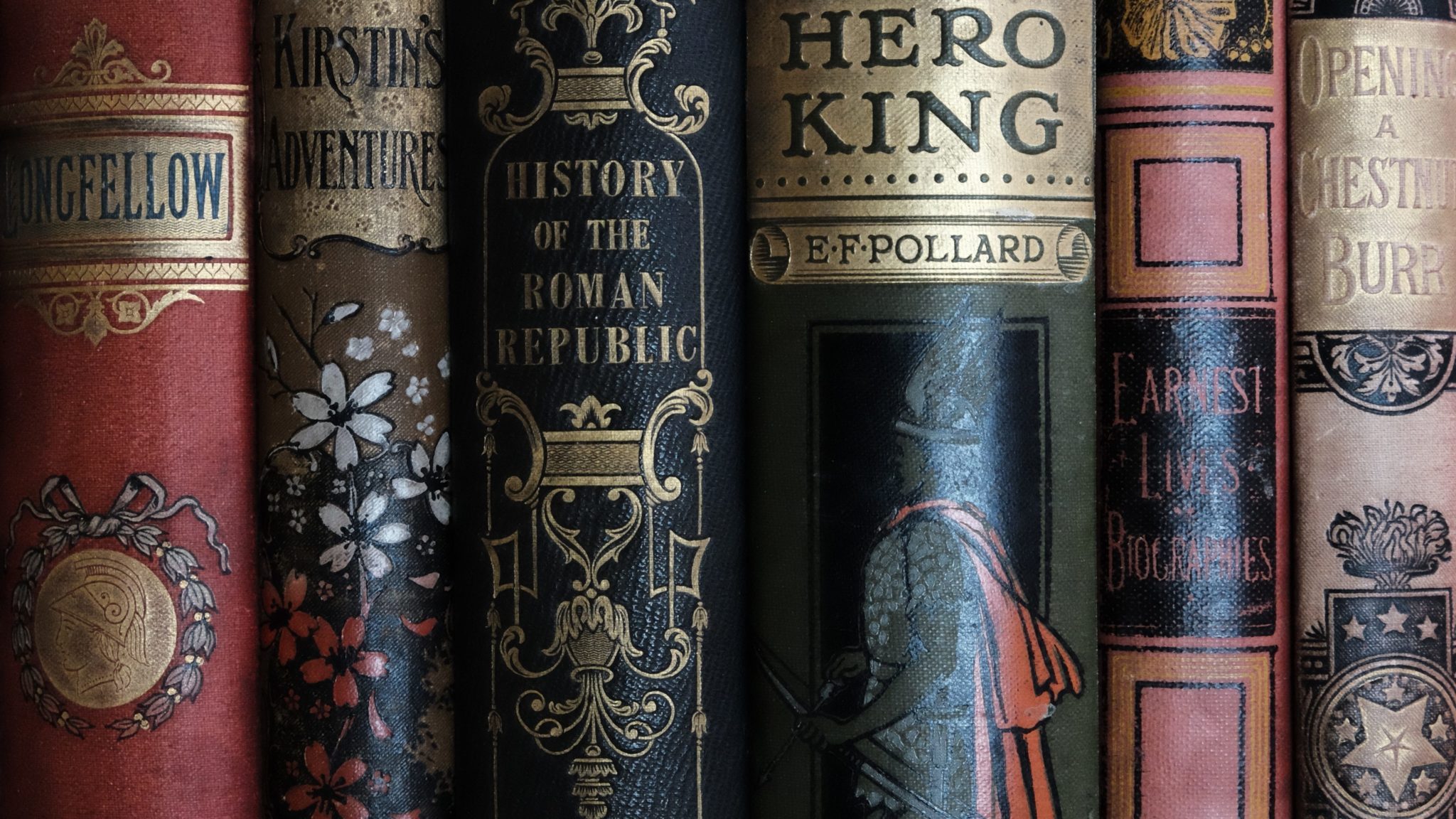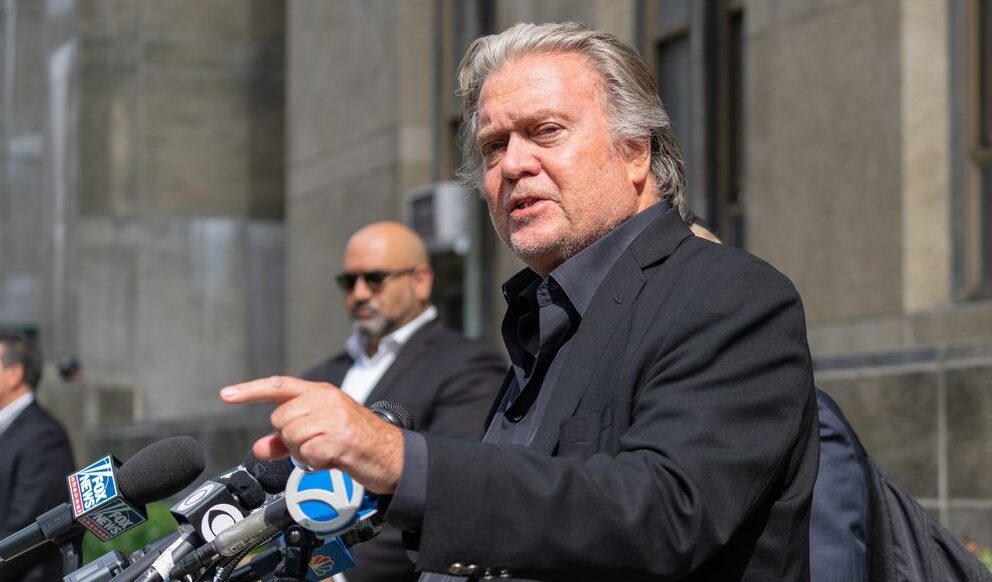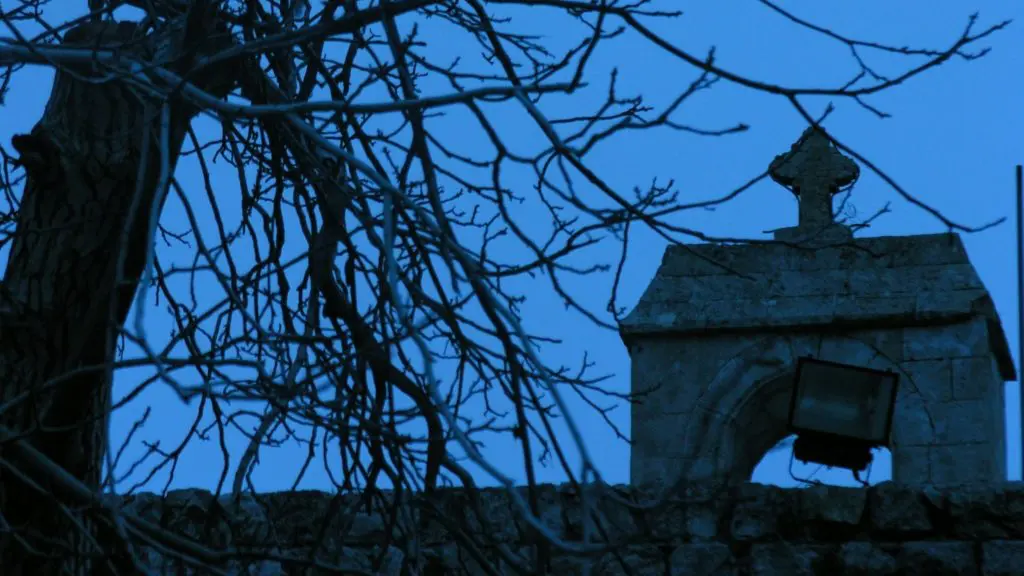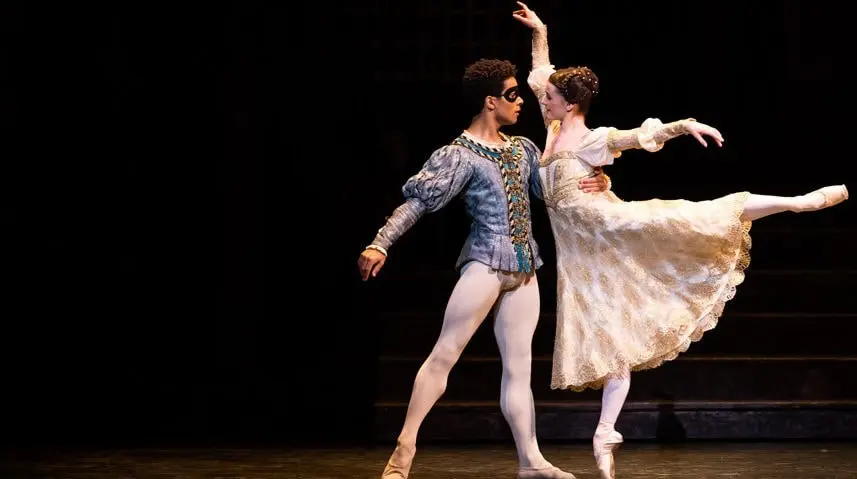[This column, as always, avoids spoilers for the novels discussed]
The Western literary tradition has many works that trumpet the glories of war, and not without reason. As we learn from St. Augustine, just war is fought for the noblest of purposes: peace. Though fighting in war is a burden on both soldiers and their loved ones, it need not be an empty burden. It can instead, like all crosses, be transmogrified into a sacrifice for the good of others. As Horace tells us, “Dulce et decorum est pro patria mori” (“It is sweet and proper to die for one’s country”).
But against this backdrop of accounts of honorable warfare came modernity, and especially the wars of the 20th century. In the First World War, astonishing numbers of young men were slaughtered by horrific new means of killing, instruments that stand as some of modernity’s most memorable blights upon our world. Wilfred Owen, the English poet and soldier who was killed in action, describes the noxious evil of the weaponized use of chlorine gas before ending his poem with an allusion to the above-quoted line of Horace:
If in some smothering dreams, you too could pace
Behind the wagon that we flung him in,
And watch the white eyes writhing in his face,
His hanging face, like a devil’s sick of sin,
If you could hear, at every jolt, the blood
Come gargling from the froth-corrupted lungs,
Obscene as cancer,
Bitter as the cud
Of vile, incurable sores on innocent tongues,–
My friend, you would not tell with such high zest
To children ardent for some desperate glory,
The old Lie: Dulce et decorum est
Pro patria mori.
One could easily enumerate many examples of poetry, fiction, song, and film that lay bare the nature of 20th century warfare. However, it is striking how many of the examples tempt readers to fall into despair, leaving us with a sense that we ought to let modern war turn us into nihilists. Despite the author’s well-known misanthropy, the first edition of Evelyn Waugh’s great trilogy of novels, The Sword of Honor, approaches war with a transcendent hope that is capable of withstanding the slings and arrows of modernity without losing itself.

The first novel: a comedy of errors
The trilogy begins with 1952’s Men At Arms. This novel introduces us to Guy Crouchback, an English Roman Catholic of an aristocratic background in his late thirties. As a young man, he married Virginia, a non-Catholic who later left him. Guy cannot remarry because, as his religion teaches, he is in fact still married to Virginia regardless of what the country’s laws say. After the divorce, Guy attempts to get away from it all by moving to Italy. There, he is relatively happy but always somewhat restless.
As the Second World War takes shape, Guy becomes increasingly convinced that he should return to England and volunteer to serve. The idea of fighting for his country appeals to him, and he imagines it will allow him to act nobly in this difficult time. Thus, in 1939 he returns to his fatherland to serve the nation. However, he finds it very difficult to gain acceptance into the military because of his age and lack of relevant experience. Finally, he is given the chance to join Royal Corps of Halberdiers, a regiment with a long (but not entirely illustrious) history.
This first novel is the most comical of the three, and it is on joining the Halberdiers that the ridiculous situations take center stage. On entering the regiment, Guy soon discovers that the modern military is not a purehearted band of brothers working exclusively for the good of their nation and the world. At the same time, however, it is not an evil gang. Instead, in Guy’s experience, the Halberdiers are a group of flesh-and-blood Englishmen who have about as much idea about how to win a war as you or I would. They spend much of their time performing exercises, but they have no idea if they will ever see active combat. Their free time is taken up, not just with vices, but with activities that are simply pointless.
Perhaps the funniest example comes from one of the many antics of Apthorpe, an officer whom Guy (somewhat unintentionally) befriends. While I could choose virtually any of this eccentric man’s actions to highlight, the one that sticks out to me is his devotion to his “thunder-box,” a portable toilet. I cannot resist sharing a snippet from the scene in which Apthorpe confides in Guy and shows him his contraband thunder-box:
Then, after another pause, [Apthorpe] said: “Well, if you must know, it’s my thunder-box.”
This was far above Guy’s hopes; his mind had been running on food, medicine, fire-arms; at the very best he had hoped for something exotic in footwear. “May I see it?” he asked reverently.
“I don’t see why not,” said Apthorpe. “As a matter of fact I think it will interest you; it’s pretty neat, a type they don’t make any more. Too expensive, I suppose.”He went to the cupboard and dragged out the treasure, a brass-bound, oak cube. “It’s a beautiful piece of work really.”
He opened it, showing a mechanism of heavy cast-brass and patterned earthenware of solid Edwardian workmanship. On the inside of the lid was a plaque bearing the embossed title Connolly’s Chemical Closet.
“What do you think of it?” said Apthorpe.
Guy was not sure of the proper terms in which to praise such an exhibit.
“It’s clearly been very well looked after,” said Guy.
It seemed Guy had said the right thing.
Despite the obvious silliness of this exchange, it helps lay the groundwork, not just for a major subplot, but also for the relationship between the two men. This relationship is (likely to Guy’s chagrin) part of Men at Arms’ beating heart. As we read on, we see how Apthorpe places his trust in life’s little conveniences, hoping that they will get him through the war. Guy, conversely, still seems to have some faith in his nation, though his ultimate faith is in Christ. Over the course of the novel, readers must consider the fruit each bears.
Apthorpe, unsurprisingly, does not fare well, but Guy’s story is more difficult to sum up. Indeed, it requires we move on from the first novel to a discussion of the other two.
The second novel: nihilism’s creeping advance
Readers who enjoy Men At Arms’ military satire may be somewhat taken aback by the shift in tone they face when cracking open Officers and Gentlemen, the second novel in the trilogy. Yes, it still has many comic moments (not least when Guy unknowingly dines with pro-Nazi Scottish nationalists, landing him under suspicion of espionage), but these notes do not predominate. Instead, a certain tone of gloom pervades the novel. Guy’s experiences (and Waugh’s framing of the war) move beyond the merely satirical into what might be termed social commentary on the military and the English people’s response to wartime life. While reading the novel, it is hard to avoid a certain feeling that much of wartime life was pointless and empty, and that the military did far less good than is often thought. For Guy, the war begins to feel futile.
A crucial metaphor in Officers and Gentlemen is that of putting someone “in the picture.” This idea, what we would likely today call “getting the picture” is constantly echoed by military commanders. We hear little about “intelligence meetings” or “debriefings” but instead are barraged with reports of officers who want to ensure everyone is “in the picture.” This phrase is so constant as to simply fall into the background, that is until one character’s thoughts bring it into focus for a moment: “It was significant, Ian Kilbannock reflected while he listened to the exposition of GSO II (Planning) that this metaphoric use of ‘picture’ had come into vogue at the time when all the painters of the world had finally abandoned lucidity.”
Though brief, this moment challenges readers to consider how the Second World War is generally pictured or ‘framed,’ and how we frame that war in our own minds. Was it a lucid battle between good and evil? Or were the ‘good guys’ more complicated than is so often imagined? This is an issue that has only grown more challenging since the first publication of Waugh’s novel. In a time when the world is reeling from Russia’s invasion of Ukraine, it can be easy to look back with romantic eyes to the last Western war that felt just and noble, World War II. While there is some truth to this—Hitler’s regime was deeply evil and needed to be stopped—it oversimplifies the war and the motives of the Western politicians and soldiers who won it.
Indeed, in my own nation, the United States, we have long been accustomed to think of all those of fighting age during the Second World War as the “greatest generation.” Again, there is a proper deference owed to those who fought to defend true Western civilization against the neo-pagan barbarism of the Nazis, but at the same time they were not without fault, whether during the war or after. Conservatives, as always, must recognize when our forebears have failed.
During the war itself, the supposedly virtuous Allied Nations decided that there was no problem with committing war crimes against civilians, as in Dresden, Nagasaki, and Hiroshima. At the time, these were seen as necessary measures and thus justifiable. But evil is never justifiable. Even today, few conservatives publicly admit that these actions were unconscionable.
After the war, Western nations tried to help reintegrate soldiers, but this is a perennial struggle with no clear answers. I often wonder about how untreated post-traumatic stress disorder from World War II has affected and continues to affect the world. Sadly, PTSD does much to explain a generation of fathers who were distant at best and abusive to their wives and children at worst. Not for nothing was the sexual revolution, which is even yet destroying our civilization, wrought largely by college students whose fathers often felt uncomfortable expressing either their pains or their loves. Modern war is hell, and those young men who got ‘in the picture’ were part of an excruciating image.
If someone were to cease reading Sword of Honor at the end of the second novel, he would be somewhat justified in thinking that Waugh had written an ultimately nihilistic work. Officers and Gentlemen does not have any childish trust in the military, the English aristocracy, or Western governance. Nihilism is a temptation that beckons to all who experience, or even study, 20th century war. Where, then, is the hope I promised? This is found, ultimately, in the series’ third book.
The third novel: earthly pessimism mingled with Christian hope
The trilogy concludes with Unconditional Surrender, a book whose very title gives us the impression that it will do little more than reinforce the emptiness of the second book and lead readers towards nihilism. However, this is not what the book does. While it certainly contains a realistic depiction of modern war, it does so with its eyes raised upwards, so to speak. The novel concludes the trilogy by putting the dark, painful, and earthy (or ‘earthly’) realities of the war within the context of man’s spiritual life.
Despite having become disenchanted with the military and the war, Guy still has a sense that he is being called by God to something great. He attempts to respond to this call by working to provide lodging and protection for a group of Jewish refugees. However, even as he tries to do this, he comes to realize that he has allowed his faith to become little more than rote, mechanical motions. He abides by God’s laws—he has neither stolen nor committed adultery, and he attends Mass and keeps all the required fasts—but not out of love. He communicates with God as though to a commanding officer: short and to the point in formulaic patterns, never opening himself up the transformative effects of grace. How can Guy be a conduit of God’s love to these refugees when he himself is so unmoved by this love?
Consideration of this novel is complicated by the fact that its author, Evelyn Waugh, was unhappy with many aspects of it from nearly the moment it was first published. He tinkered with the text for years, and the final edition makes a crucial change in the final pages of the novel. However, regardless of which edition you read (I prefer the first, even if Waugh himself thought it too much of a happy ending), the novel masterfully pulls together the satire of Men at Arms and the wasteland of Officers and Gentlemen into a coherent whole.
The Sword of Honor trilogy may well be Waugh’s most challenging work, and it is sadly neglected by many of his readers today. Thankfully, it rewards the challenge. Readers are rewarded for their effort with uproarious military satire, brutally honest depictions of wartime incompetence, and, most importantly, hope. For the novel’s protagonist does not find his ultimate fulfillment in military success and earthly glory, but in the God whose glory surpasses human understanding.





